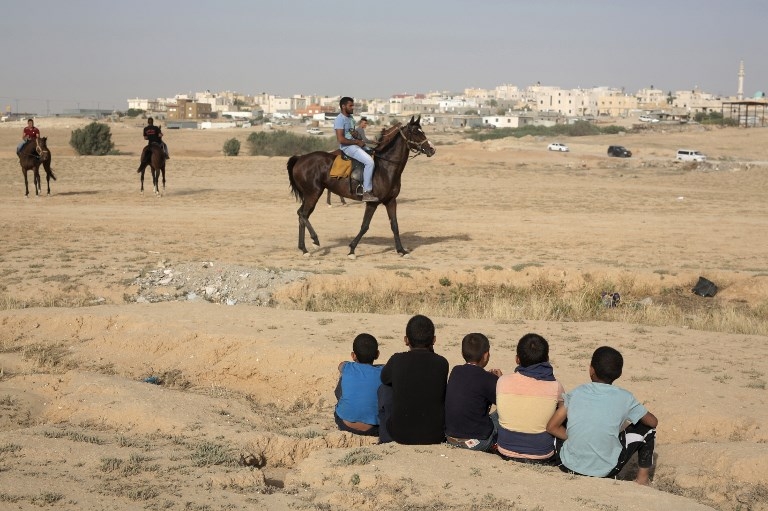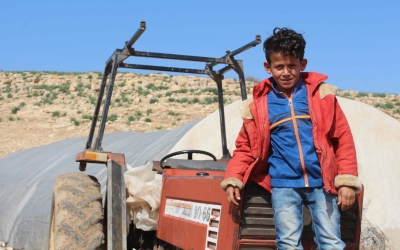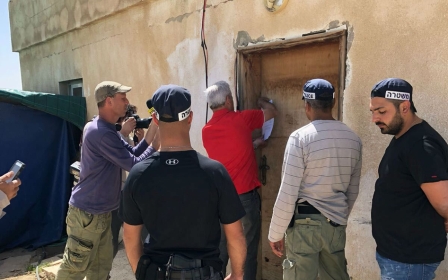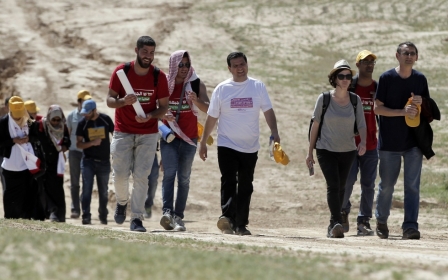Israeli court to hear petition against eviction of 15,000 Bedouins from Negev

The Israeli Supreme Court is set to hear a lawsuit against a planned phosphate mine in the Negev desert that could see thousands of Bedouins evicted from their homes, rights groups and Bedouin families have said.
On Wednesday, the top Israeli court will look into the petition filed by residents of al-Furaa village, who are among 15,000 Bedouins at risk of eviction, according to the Legal Centre for Arab Minority Rights in Israel (Adala).
On 21 January, 168 al-Furaa residents along with Adala, the Regional Council of Unrecognised Villages of Negev, the Association for Civil Rights in Israel (ACRI), Physicians for Human Rights-Israel (PHR-I), and Bimkom - Planners for Planning Rights filed a Supreme Court petition to stop the construction of the mine.
'The government plans to move these citizens to poverty-stricken, government-planned townships'
- Adala, NGO
The mine, known as Sde Barir, was planned despite 15,000 Bedouins living in the area, including in al-Furaa, which will be the community worst affected.
The scheme, announced by Israeli authorities in March, would appropriate 26,000 dunums (2,600 hectares) around the Barir and Zohar South fields for mining.
It is apparently part of a broader plan that could see 36,000 Palestinian Bedouin citizens of Israel evicted from their homes in the southern Negev region.
Israeli authorities have said the area will be cleared of its Bedouin to pursue "national projects" for economic development, as well as military training areas, according to Adala.
“The plan provides clear confirmation that Israel’s Authority for the Development and Settlement of the Bedouins in the Negev overtly discriminates against the Bedouin population, and considers them an obstacle that must be removed from the landscape in order to clear a path for Jewish settlement and 'development'," the rights groups that filed the lawsuit said in a statement.
“The government plans to move these citizens to poverty-stricken, government-planned townships in other areas of the Naqab,” the groups added, using the Arabic name for the desert.
The Israeli government has approved the plan despite objections by the Israeli health ministry over the expected increase in mortality rates as a result of the project.
The legal petition argued that Israeli authorities have failed to take into account the impact of the mine on the residents of al-Furaa who they said have been ignored in the project’s environmental impact assessment survey.
The Negev region is home to thousands of Bedouins, who are the indigenous inhabitants living in informal towns designated by Israel as “unrecognised villages.” Due to their status, the villages do not receive municipal services such as water and electricity.
According to Human Rights Watch, Bedouins have historically faced discriminatory eviction policies by Israeli forces as opposed to Jewish citizens of Israel who do not usually conform to local planning laws.
Middle East Eye propose une couverture et une analyse indépendantes et incomparables du Moyen-Orient, de l’Afrique du Nord et d’autres régions du monde. Pour en savoir plus sur la reprise de ce contenu et les frais qui s’appliquent, veuillez remplir ce formulaire [en anglais]. Pour en savoir plus sur MEE, cliquez ici [en anglais].




